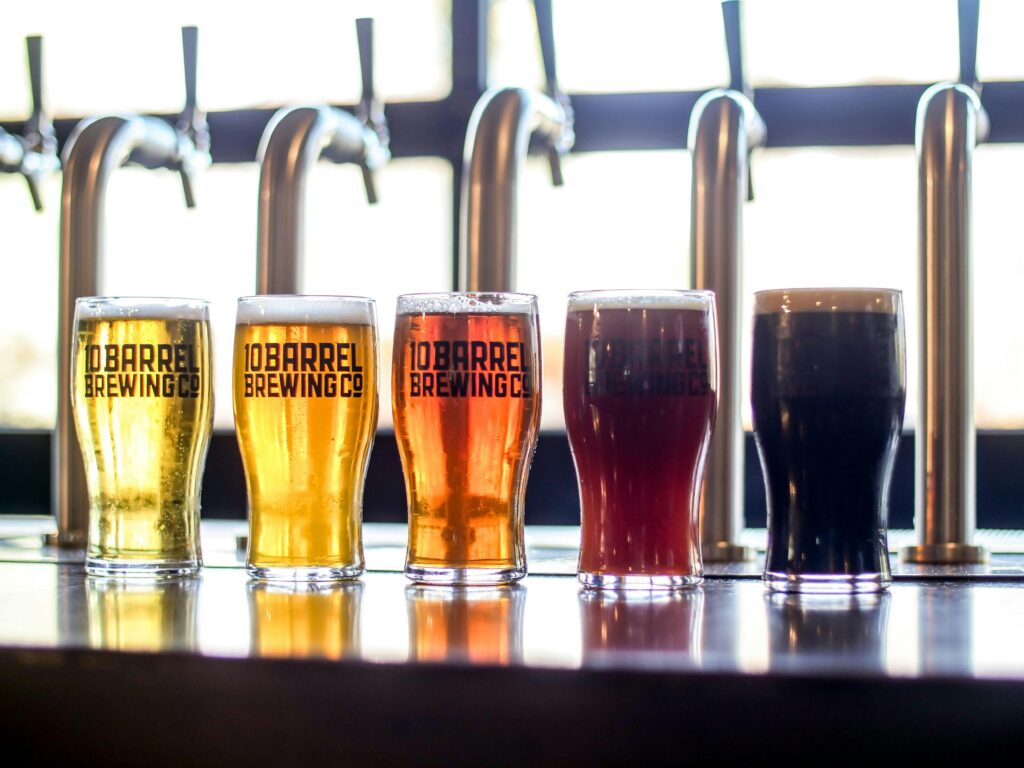
Making beer at home, also known as homebrewing, can be a fun and rewarding hobby. Here’s a basic overview of the process:
Ingredients:
- Water: It makes up most of the beer and plays a crucial role in taste. Opt for filtered or bottled water if your tap water has a strong taste or odor.
- Grain: Malted barley is the most common grain used, but brewers can also experiment with wheat, oats, or rye for different flavor profiles.
- Hops: These flowers add bitterness, aroma, and act as a natural preservative.
- Yeast: This single-celled organism converts the sugars from the grain into alcohol and carbon dioxide, creating the fermentation process.
The Process (Basic Steps):
- Mashing: The grains are steeped in hot water, allowing enzymes to convert starches into fermentable sugars.
- Lautering: The sweet liquid (wort) is separated from the spent grains.
- Boiling: The wort is boiled with hops, adding bitterness, aroma, and sterilizing the liquid.
- Cooling: The wort is rapidly cooled to a temperature suitable for yeast.
- Fermentation: Yeast is pitched into the cooled wort and ferments the sugars into alcohol and carbon dioxide. This is where the magic happens!
- Bottling/Kegging: The fermented beer is bottled or transferred to a keg for carbonation and secondary conditioning.
- Carbonation: Depending on the method (bottling or kegging), CO2 is added to create the signature fizz in beer.
- Enjoy!: After a period of conditioning (usually a week or two), your homemade beer is ready to be enjoyed!
Homebrew Equipment:
There are various homebrew kits available for beginners, containing most of the necessary equipment for brewing a small batch of beer. Here are some essential tools:
- Brew Kettle: A large pot for heating the water and steeping the grains.
- Fermentation Bucket: A food-grade container to house the beer during fermentation.
- Airlock: Allows CO2 to escape during fermentation while preventing contaminants from entering.
- Siphon: Transfers beer between containers without disturbing sediment.
- Bottles/Keg (Optional): Depending on your bottling preference.
Getting Started:
- Beginner Kits: As mentioned earlier, homebrew kits are a great way to get started. They come with all the ingredients and basic equipment needed for your first batch.
- Online Resources: There’s a wealth of information available online about homebrewing. Websites and forums can answer your questions and guide you through the process.
- Safety First: Sanitation is crucial throughout the brewing process to prevent contamination. Be sure to sterilize all your equipment before using it.
Remember: Homebrewing takes time and practice, but it’s a fun and rewarding hobby that allows you to experiment with flavors and create your own unique beers. So, if you’re interested, grab a homebrew kit and get started on your brewing journey!tunesharemore_vert
